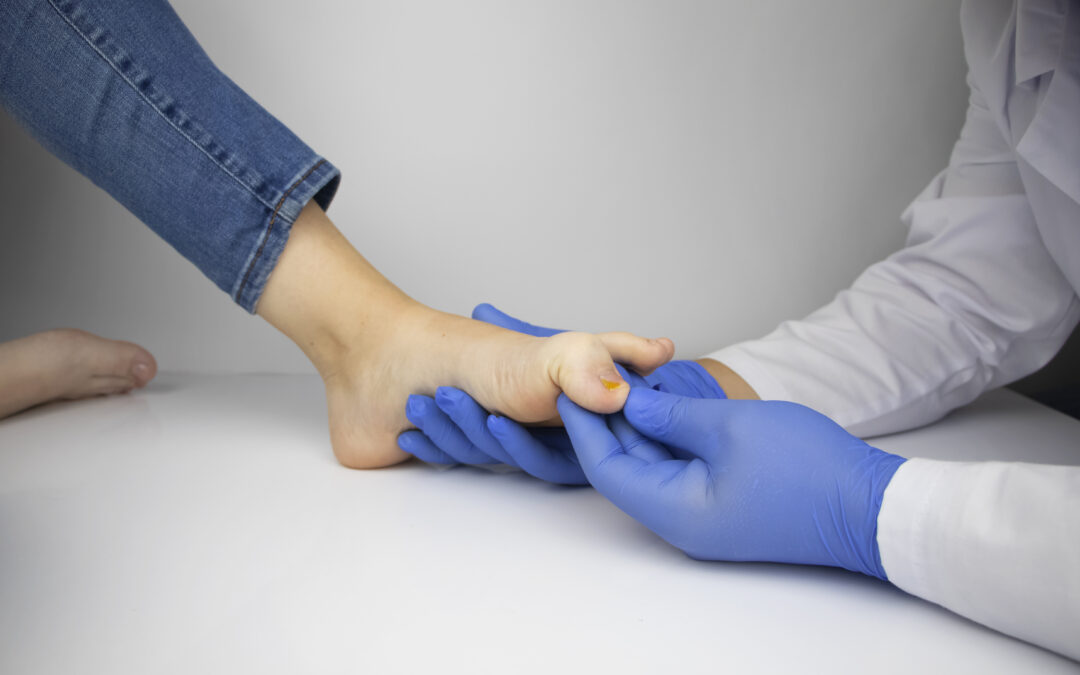Let’s shed light on ingrown toenails and ingrown toenail treatment provided by Podiatry Associates.
So, what is an ingrown toenail? An ingrown toenail occurs when the toenail curves into the soft tissue of the foot. Although it can occur in any toe, the big toe is most commonly affected. When ingrown toenails are a concern, Podiatry Associates provides best-in-class ingrown toenail surgery and non-surgical treatment in Baltimore to cure the ingrown toenail. In general, ingrown toenails can be caused by a wide variety of circumstances, such as:
- Wearing shoes that fit improperly
- Improper trimming of toenail edges
- Cutting down the toenails too short
- Excessively curved toenails
- Direct trauma to the nail
- Changes in nail shape or character
- Toenail fungus and fungal nail changes
Conservative treatment may include oral or topical antibiotics, medicated foot soaks, proper nail trimming, treatment of nail fungus (if present), and shoe changes. If conservative treatment is not sufficient, minor surgical treatment may be performed. This course of action is often pain free or with minor discomfort.
During the surgical treatment, podiatric surgeons may remove the ingrown portion of the nail and prescribe an oral or topical medication to decrease the likelihood of infection. If a patient suffers from chronic, recurring ingrown toenails, the podiatrist may recommend a procedure to permanently remove the ingrown nail.
As suggested by experts, here are a few things that you can do to avoid an ingrown toenail.
Following are the common symptoms that indicate the occurrence of ingrown toenails:
- Ensure that you properly trim your nails – the nails should be cut straight across the tip of toe and then filed smooth.
- Avoid cutting into the corners of the toenails
- Avoid wearing shoes that touch, press or squeeze on toenails.
Some patients may attempt self-treatment, such as trimming the nail, foot soaks, and topical antibiotics. However, at-home treatment might not bear results. It is best to visit a podiatrist in the event that conservative treatment fails to relieve pain, or if you notice drainage, redness or continued pain. Patients who suffer from health problems such as diabetes or poor circulation should always seek treatment immediately after recognizing signs of an ingrown toenail to avoid complications.
Most foot and ankle conditions are treated in the office and at the Ambulatory Surgery Centers of Podiatry Associates. These centers offer quality and affordable treatments performed by experienced surgeons. There are 10 offices surrounding the Baltimore Metro area which in-office procedures are carried out for the treatment of ingrown toenails, corns, and plantar fasciitis with the help of podiatric surgery.
The surgeons at Podiatry Associates are board qualified or board certified by the American Board of Podiatric Surgery. The success of Podiatry Associates is largely attributed to the doctors, administration, and staff who consistently ensure high-quality treatment for patients of all ages.
Thus, if you opt for any kind of foot treatment or surgery in Baltimore, review the treatment options provided by Podiatry Associates. Our team of top surgeons provide the top-rate treatment in all aspects of toenail surgery.
Time to See a Podiatrist?
If you have any of the issues described above, it’s time to consult an expert. Connect with Podiatry Associates for an evaluation. All of our doctors are board certified/qualified and we’re dedicated to preserving your foot health.





